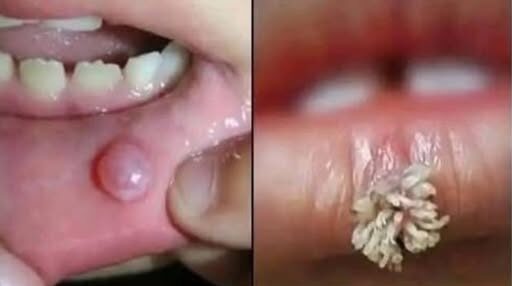If you’ve ever noticed a small, painful blister popping up near your lips, you’re not alone — and it’s likely a cold sore, also known as a fever blister. But here’s the important part: these aren’t just annoying bumps. They’re a visible sign of a viral infection—most often caused by the herpes simplex virus (HSV-1).
❗What You Need to Know
Cold sores are highly contagious, especially during an active outbreak. They usually spread through direct contact like kissing or sharing drinks, but even things like towels, razors, or lip balm can transfer the virus if contaminated.
Once you’ve been infected, the virus stays in your body for life—hiding in your nerve cells and waiting to strike again when your immune system is down.
⚡The Triggers That Bring It Back
What causes a cold sore to flare up again? Sometimes it feels like they show up at the worst possible moment, and that’s no coincidence. Common triggers include:
- Stress
- Sun exposure
- Colds or other illnesses
- Hormonal changes (like during menstruation)
- Fatigue or a weakened immune system
⏱ What It Feels Like
- Stage 1: You feel a tingle, itch, or burning sensation.
- Stage 2: Small, fluid-filled blisters appear.
- Stage 3: The blisters burst, crust over, and begin to heal.
A typical outbreak lasts about 7 to 10 days.
💊 Treatment & Relief
There’s no cure for cold sores, but you can manage them. The earlier you start treatment, the better.
Helpful options include:
- Antiviral creams or pills (available by prescription or over-the-counter)
- Pain relievers (like ibuprofen)
- Soothing lip balms (especially ones with SPF)
- Cold compresses to reduce swelling
🛡 Prevention Tips
To reduce the chance of future flare-ups or spreading it to others:
- Avoid kissing or sharing drinks during an outbreak
- Don’t touch the sore — and wash your hands if you do
- Use sunblock on your lips
- Boost your immune system through sleep, diet, and stress management
🩺 When to See a Doctor
If your cold sores are:
- Showing up frequently
- Especially painful
- Not responding to treatment
…it might be time to talk to a healthcare provider. There are long-term antiviral treatments available that can help you stay ahead of the virus.
Bottom Line
A cold sore isn’t just a surface-level issue—it’s a sign your body is dealing with a hidden viral guest. Stay alert, act early, and take care of yourself to reduce flare-ups and avoid spreading the infection.

Sophia Reynolds is a dedicated journalist and a key contributor to Storyoftheday24.com. With a passion for uncovering compelling stories, Sophia Reynolds delivers insightful, well-researched news across various categories. Known for breaking down complex topics into engaging and accessible content, Sophia Reynolds has built a reputation for accuracy and reliability. With years of experience in the media industry, Sophia Reynolds remains committed to providing readers with timely and trustworthy news, making them a respected voice in modern journalism.
